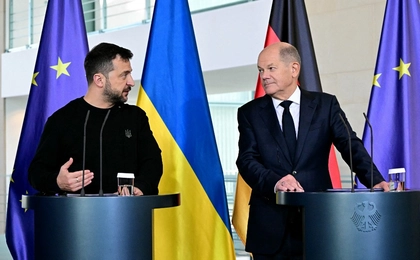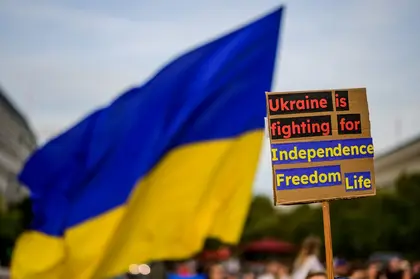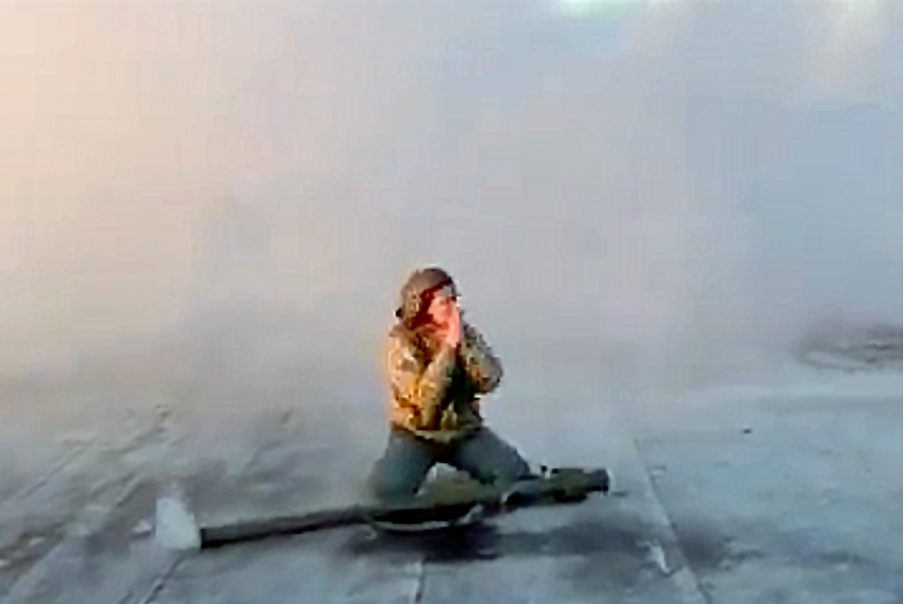An article appeared last week in the Foreign Affairs journal entitled “A Theory of Victory for Ukraine” which immediately sparked broad interest and comment across the globe.
The authors, Ukraine's former Minister of Defense, Andriy Zagorodnyuk, and Eliot A. Cohen, a well-known American diplomat and political scientist, rightly point out that until recently the US and the West as a whole refrained from using the term “victory” and generally avoided describing its goal in Ukraine as a Russian defeat, at least in public.
JOIN US ON TELEGRAM
Follow our coverage of the war on the @Kyivpost_official.
Washington has contented itself with the largely meaningless statement that it will support Ukraine “for as long as it takes,” but the authors suggest that now “The West must explicitly state that its goal is a decisive Ukrainian victory and Russian defeat.”
The authors are completely justified in chastising the West and their demand, especially concerning the US, is quite appropriate. However, to be fair, a growing number in the West are not only explicitly calling for the defeat of Russia once and for all but are also actively working to establish a “coalition of the willing” that would make that goal a reality.
I am referring first and foremost to the President of France, Emmanuel Macron, rendered Putin's continuing nuclear saber-rattling completely ineffective by reminding the Kremlin that “France is also a nuclear power” as well as for renewing the “Entente Cordiale” by saying:

Ukraine Slams Scholz After First Call With Putin in Two Years
“Britain and France are both absolutely clear: Ukraine must win this war. If Ukraine loses, we all lose. But we must do even more to ensure we defeat Russia. The world is watching – and will judge us if we fail.”
Thanks to Michael McCaul's brilliant speech in US Congress in his role as Chair of the Foreign Affairs Committee, the red line the traitor [CIA Director} Burns drew in the sand in private conversation with Putin in November 2021 has all but been eliminated. This line put in place the ban on using American weapons to strike Russian territory, which Secretary of State Blinken is now asking President Biden to lift.
It seems in principle the authors' appeal to the West to frame its political objective in the war as Russia's total defeat has been duly noted. Now all that needs to be done is to outline the sequence of steps the military needs to take on both the operational and strategic levels in order to achieve this goal.
The authors of the article describe the following possible sequence: the West increases regular shipments of ammunition, missiles, and air defense systems; the long-awaited F-16s finally arrive all of which effectively gives Ukraine all it needs to implement the authors' plan for a victory:
"The process of softening Russian positions and weakening Russian resolve will likely take about a year, after which Ukraine should reclaim the initiative. Kyiv should again launch limited counteroffensives, which will allow it to retake key terrain."
Although I greatly respect the authors and stand in full solidarity with their political position, I believe what they have proposed is not so much a plan for Ukraine to win the war but rather a way to prolong it for several years with the sides butting heads up and down the well-fortified line of contact and the casualties mounting .
I also have to differ with the authors' claim from the epigraph. Someone has come up with a theory. For three months now, in step with Macron's initiatives, the renewed Entente Cordiale, and the coalition of the willing, I have been developing my own Theory of Victory for Ukraine.
The war in Ukraine is not merely a stalemate confrontation along the thousand-kilometer line of contact. It has, in my opinion, a completely different center of gravity (cf. Clausewitz) - the Crimean Peninsula. Both sides in this war value the immense political symbolism Crimea represents.
At the same time, it represents the most vulnerable component of the Russian military machine. Ukraine managed to force Russian naval forces out of Crimean ports despite lacking its own aircraft or naval fleet. And now, having received long-range missiles, Ukraine has been striking airfields in the Crimea on a regular basis. It turns out Russian air defense systems there aren’t up to the task.
If the skies over Ukraine become dotted with 100, or, even better, 200 state-of-the-art Western aircraft, the country will not only gain supremacy in the air, it will also render Russia's occupation of the Crimea untenable. It will have to withdraw from the peninsula or be completely destroyed remotely.
What's preventing the world from witnessing such a magnificent finale? One of those absurd, artificial red lines that Ukraine and its allies have imposed on themselves, this one stating only Ukrainian pilots can be at the controls of Western aircraft. We have been waiting for these pilots for two years. It's possible we will see a few dozen of them in the next two or three months. But no way will we get the necessary 100-200.
Ukrainian pilots flying F-16s over the skies of Ukraine is a good thing. A beautiful thing. But it's not a path to victory. A path to victory, a quick and decisive one, at that, would require cohesive combat units from the Air Forces of France, the UK, and Sweden deployed from the airfields of Romania, Poland, and Finland.
This is not just wishful thinking. It is a very real way to implement the top-notch conceptual framework proposed by Macron and the coalition of the willing that he has been assembling since Feb. 26:
“We must defeat Russia. I do not rule out putting French boots on the ground in Ukraine. Our military is already taking part in combat operations in Ukraine.” France also has nuclear weapons. France intends to dispatch military instructors to Ukraine.
On June 6 Macron will meet with Ukraine’s Volodymyr Zelensky in Normandy to discuss what they should do together to defeat Russia – it seems obvious to me what must be done.
The views expressed in this opinion article are the author’s and not necessarily those of Kyiv Post.
Dr. Andrei Piontkovsky is a Russian scientist, political writer and analyst, member of International PEN Club who was forced to leave Russia in 2016. For many years he has been a regular political commentator for the BBC World Service, Radio Liberty, Voice of America. Piontkovsky is the author of several books on the Putin presidency, including Another Look into Putin's Soul and Russian Identity (published by Hudson Institute). In 2017, Piontkovsky was awarded the Andrei Sakharov Prize for “Courage in Journalism.” In 2019, he was recognized by the Algemeiner publication as one of the Top-100 People Positively Influencing Jewish Life. Dr. Andrei Pointkovsky, Wikipedia
You can also highlight the text and press Ctrl + Enter






